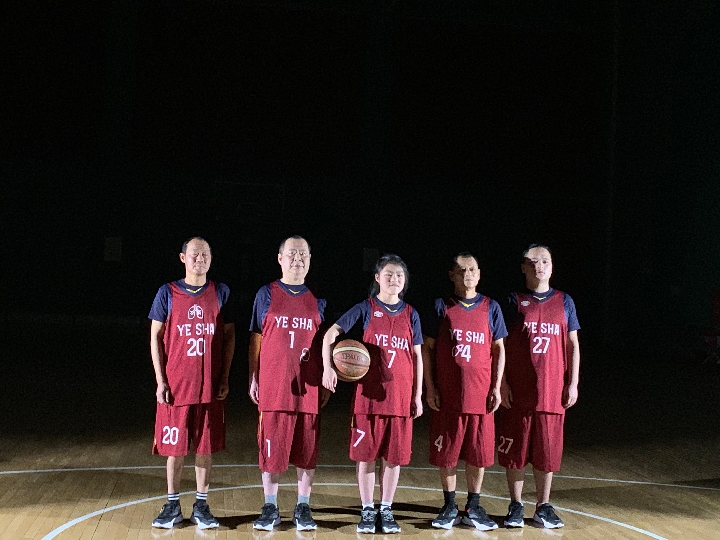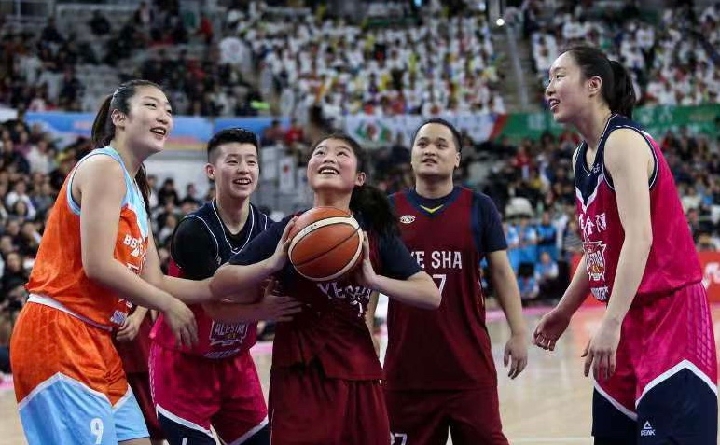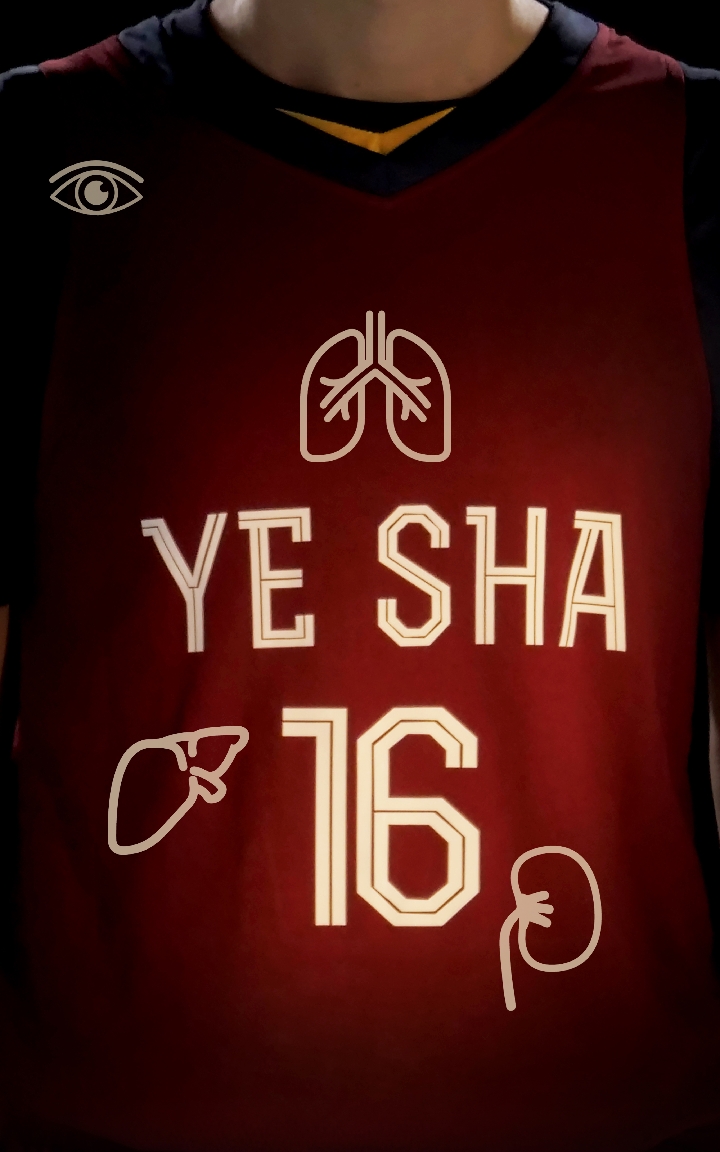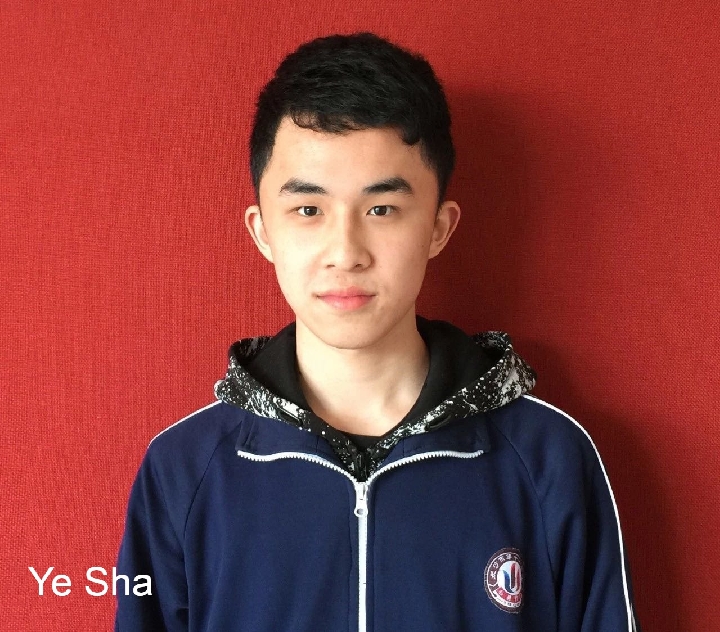by Xinhua writer Yuan Quan
BEIJING, Feb. 28 (Xinhua) -- This is a special basketball team: five players from three provinces, aged 14 to 54. It includes a police officer, a student and a coal miner.

Fiver members of Ye Sha Basketball Team (left to right): Liu Fu, Hu Wei, Yan Jing, Zhou Bin, Huang Shan. (Xinhua)
They have just one thing in common - they all have organs from one donor.
The donor died at 16 from a sudden brain hemorrhage in 2017. The day after he was declared braindead, his parents donated his heart, lungs, liver, kidneys and corneas, helping at least seven people.
The donor's parents were reluctant to donate at first. Then they learned from the school that their son had dreamed of becoming a doctor, said He Yiping, coordinator of the Red Cross Society of China Hunan Branch.
The donor's age had shocked the recipients. Some burst into tears.
TOUGH DECISION

Yan Jing (center) tries to make a shot with the help of professional basketball players from the Women's Chinese Basketball Association. (Xinhua)
Learning the teenager was a basketball fan, five of the recipients formed a team named after him and played a match against professional players in late January as their tribute to the donor and the cause that has saved thousands of lives.
"We have children too. It is such a hard decision. The parents are great," said kidney recipient Hu Wei, 50.
Hu fell ill in 2016. He was laid off and went to hospital for four hours of dialysis treatment every other day. Before the transplant in 2017, he was very weak and dared not drink. "Peeing was a luxury to me," Hu said.
Liu Fu, 49, is captain of the team. He was a miner in Hunan Province and diagnosed with a serious lung disease caused by coal mine dust 19 years ago.
Liu went heavily into debt and tried to commit suicide several times. When his wife died in 2015, he donated her organs to three people, never knowing that one day he would be a transplant recipient.
The oldest player is Zhou Bin, 54, a police officer in south China's Guangxi Zhuang Autonomous Region for 26 years. A doctor told him he had only three months to live without a new liver. "I am not old. I don't want to die," he said.
The two youngest players are Huang Shan, 22, and Yan Jing, 14, who received corneas. Both suffered eye defects from childhood.
"I found that people wanted to run and hide when they saw my eyes," said Yan, the only female team member.
After their transplants, they all returned to work or school and they've had the donated organs ever since.
BREAKING TRADITION

The special basketball team keeps numebr 16 to commemorate the donor Ye Sha. Picture provided by Lung Chieh Chi. (Xinhua)
It is rare that one donor helps as many as seven people, said He Yiping.
He believes the main impediment to donation in China is that many conservative elderly people still insist on the Chinese tradition of burying the dead intact.
Last year, the China Organ Donation Administrative Center (CODAC) published the story of the basketball team to promote awareness of the cause.
In accordance with the principle that donor families and recipients should never know each other, the five recipients used assumed names. The team name, Ye Sha, is also an alias for the donor.
The principle was created to reduce the possibility of organ trafficking, and to avoid unnecessary pressure or harassment on the donor families and recipients.
In a poster, the five players stand in a row, and the numbers on their jerseys make up the date April 27, 2017, the day the donor died. The day they survived.
"We all are Ye Sha," Zhou Bin said. "We are the one."
Most of them are not basketball players. They had two days of training before the five-minute game. The team had just three shots, with the help of their competitors from the Women's Chinese Basketball Association. But they received warm applause from the audience, including basketball star Yao Ming, in the stadium in north China's Inner Mongolia.
Zhang Shanshan, a spokesperson for CODAC, said many organ recipients fear discrimination, which could affect their work and lives, and two recipients declined to join the team.
Long Jieqi, planning director of the CODAC campaign, expected the team would raise awareness of how transplant patients recover and regain confidence.
GIFT OF LIFE

Ye Sha, the donor, died at 16 after a sudden brain hemorrhage. (Xinhua)
China banned transplants of organs from executed prisoners in January 2015, and voluntary donations have been the only source since then.
Though the number of prospective donors is rising fast, it is still far from enough. About 300,000 Chinese are on waiting lists, but only more than 16,000 receive transplants each year. As well as the high costs, they face a shortage of medical professionals, hospitals and organ donors.
The story was first put on WeChat social network in November last year. It went viral, with millions of hits and reposts.
In response, more than 31,000 people registered as donors.
Theoretically, each donor can give an average of 3.5 organs, which means about 110,000 people could benefit.
"Organ donation requires the support of everyone. We don't try to persuade individuals to donate, but to make organ donation appreciated by the whole of society," said Zhang.
By the end of 2018, more than 900,000 people had registered as donors, including the basketball team.
"I will take good care of the boy's organs. As long as I can help others, I am willing to donate all my organs," said Liu Fu. Enditem



